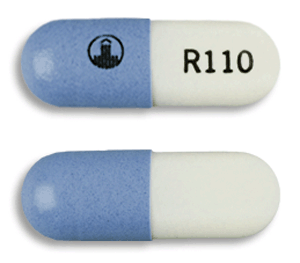Report Shows Drug Makers Delay Reporting Adverse Events to FDA
 A recent analysis published in JAMA Internal Medicine shows that 10 percent of cases where a drug causes severe harm to patients are not reported to the FDA within the specified 15-day time period. This lag time in reporting serious adverse events endangers lives needlessly, leaving patients unwittingly exposed to the effects of potentially dangerous drugs.
A recent analysis published in JAMA Internal Medicine shows that 10 percent of cases where a drug causes severe harm to patients are not reported to the FDA within the specified 15-day time period. This lag time in reporting serious adverse events endangers lives needlessly, leaving patients unwittingly exposed to the effects of potentially dangerous drugs.
The study’s authors fear the problem is actually much worse than the analysis suggests, considering only an estimated 2 percent of adverse events are ever reported to health regulators.
Even more alarming, it seems that Big Pharma is more likely to stall reporting if a patient death is involved, said senior author Pinar Karaca-Mandic, an associate professor at the University of Minnesota School of Public Health. The authors included an editorial note with their analysis that called on the FDA to strengthen its drug reporting requirements and enforcement strategies with manufacturers.
The FDA relies on adverse event reports from drug manufacturers to alert the public about safety issues that arise after a drug is launched, and it is this critical data that is reviewed when the agency issues a recall or suspends medication sales.
40,000 reports of patient death delayed
Serious adverse events are defined as those concerning “death, a life-threatening adverse drug experience, inpatient hospitalization or prolongation of existing hospitalization, a persistent or significant disability/incapacity, or a congenital anomaly/birth defect.” Manufacturers are under obligation to report these or other unexpected adverse events within 15 calendar days to the FDA. Unfortunately, drug makers are rarely in compliance.
The analysis, which reviewed 1.6 million logs from the FDA’s AE Reporting System between 2004 and 2014, found that companies only report about 87 percent of adverse events that don’t involve patient death within 15 days. The remaining events were submitted weeks and months later. According to Karaca-Mandic and colleagues, over 40,000 reports that involved patient death were delayed, with three percent of those delayed for up to three months.
The study’s authors also cited a letter that FDA officials sent pharmaceutical giant Pfizer in 2010. The company was admonished for submitting untimely reports, which in some instances, were more than three years late.
Dangerous drug side effects cited in lawsuits
Drug manufacturers like Pfizer, Bayer Healthcare and Takeda Pharmaceuticals are no strangers to products liability litigation and accusations of failure to warn. The popular blood thinner Xarelto, launched in 2011 by Bayer and Janssen, has been linked to life-threatening bleeding events, much like its predecessor Pradaxa.
Actos, a blockbuster diabetes drug from Takeda, now carries a warning regarding bladder cancer risks. Patients who took the medication before this label update and later developed cancer have sought recourse through the courts. Over the past few years, more than 3,500 Actos lawsuits have been filed against Takeda, which recently announced a $2.4 billion settlement to resolve pending federal claims.
Other prescription medications, designed to improve the health and lives of its users, have also been associated with disturbing side effects after reaching the marketplace. SSRI antidepressants such as Pfizer’s Zoloft have been tied to birth defects and suicidal tendencies in children and adolescents.
Drug makers have a responsibility to not only produce a product that is safe for its intended purpose, but to inform the FDA of adverse events in a timely manner. Without this crucial information, thousands of Americans may be taking dangerous medications without even knowing it.
- JAMA Internal Medicine, Drug Manufacturers’ Delayed Disclosure of Serious and Unexpected Adverse Events to the US Food and Drug Administration http://archinte.jamanetwork.com/article.aspx?articleid=2398401
- Health Day, Drug Makers may Delay Reporting Patient Harms to FDA: Study http://consumer.healthday.com/public-health-information-30/drug-safety-news-741/drug-companies-sometimes-delay-reports-of-patient-harms-to-fda-study-701680.html


 Resources
Resources
 Resources
Resources
